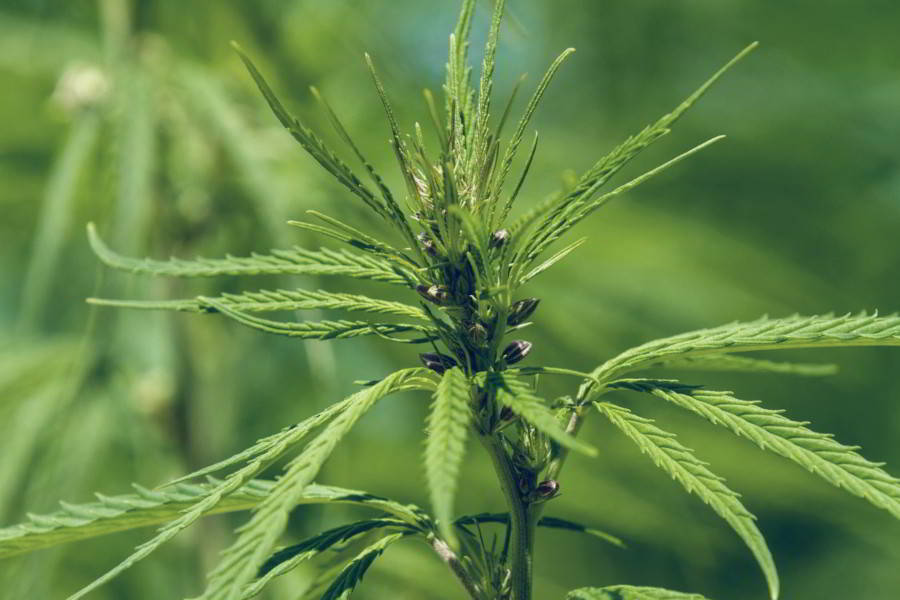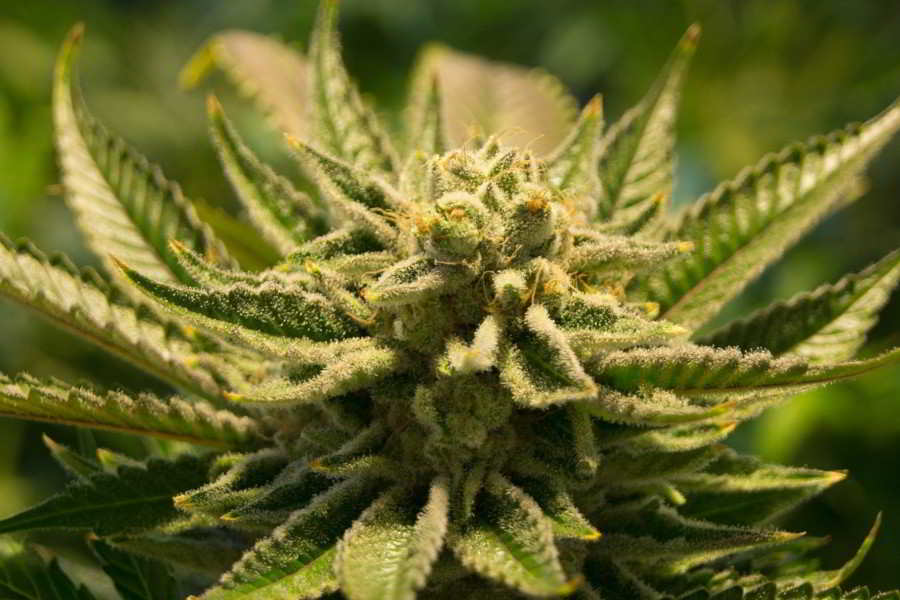Marijuana vs. hemp
In various Western countries like the United States, the definition of hemp vs. marijuana can be important for legal reasons – although hemp (see Figure 1) is a legal crop, the cultivation of marijuana (see Figure 2) is mostly considered illegal or requires strict regulations. Often, hemp is distinguished from marijuana based on the percentage of
THC in the dried plant. The threshold that determines the difference is 0.3% THC, where plants with less than 0.3% THC are considered hemp, while plants equal to or higher than 0.3% THC are considered marijuana, or
drug-type plants. This definition is attributed to a publication by Ernest Small and Arthur Cronquist in 1976, in which they admitted to arbitrarily having chosen this value.
1 Overall, the
hemp-type plant is typically grown for industrial uses, while the
drug-type marijuana plants are grown for medical or recreational use.
 Figure 1: Hemp.
Figure 1: Hemp.
 Figure 2: Marijuana.
Figure 2: Marijuana.
Lynch and colleagues
2 compared the genetics of
hemp-type cannabis which is used for its fibers, with two
drug-types of cannabis that are used for human consumption, namely the narrow leaf drug-type (similar to the leaves of sativa plants) and the broad leaf drug-type (similar to the leaves of indica plants). They found that the
cannabidiol (CBD) percentage was significantly different in hemp type, from either a narrow leaf or a broad leaf type.
2 Sawler and colleagues were also able to differentiate marijuana and hemp types of cannabis by genetic sequencing.
3
If we zoom in to the
drug-type side of the multi-dimensional cannabis variety continuum, we look into a world of varieties that are so important in the social debate, including terms that are abundantly used in cannabis retail stores. To learn more about how different classification systems are used to differentiate between them, read the chapter
Taxonomy (sativa vs. indica).
Watch a brief summary of this topic in our video made in collaboration with
Enlighten on
YouTube or on
the screens page.
- Small, Ernest; Cronquist, Arthur (1976). A practical and natural taxonomy for Cannabis. Taxon, 405--435.
- Lynch, Ryan C.; Vergara, Daniela; Tittes, Silas; White, Kristin; Schwartz, C. J.; Gibbs, Matthew J.; Ruthenburg, Travis C.; DeCesare, Kymron; Land, Donald P.; Kane, Nolan C. (2016). Genomic and Chemical Diversity in Cannabis. Critical Reviews in Plant Sciences, 35(5-6), 349--363.
- Sawler, Jason; Stout, Jake M.; Gardner, Kyle M.; Hudson, Darryl; Vidmar, John; Butler, Laura; Page, Jonathan E.; Myles, Sean (2015). The Genetic Structure of Marijuana and Hemp. PLOS ONE, 10(8), e0133292.
 Figure 1: Hemp.
Figure 1: Hemp.
 Figure 2: Marijuana.
Lynch and colleagues2 compared the genetics of hemp-type cannabis which is used for its fibers, with two drug-types of cannabis that are used for human consumption, namely the narrow leaf drug-type (similar to the leaves of sativa plants) and the broad leaf drug-type (similar to the leaves of indica plants). They found that the cannabidiol (CBD) percentage was significantly different in hemp type, from either a narrow leaf or a broad leaf type.2 Sawler and colleagues were also able to differentiate marijuana and hemp types of cannabis by genetic sequencing.3
If we zoom in to the drug-type side of the multi-dimensional cannabis variety continuum, we look into a world of varieties that are so important in the social debate, including terms that are abundantly used in cannabis retail stores. To learn more about how different classification systems are used to differentiate between them, read the chapter Taxonomy (sativa vs. indica).
Watch a brief summary of this topic in our video made in collaboration with Enlighten on YouTube or on the screens page.References:
Figure 2: Marijuana.
Lynch and colleagues2 compared the genetics of hemp-type cannabis which is used for its fibers, with two drug-types of cannabis that are used for human consumption, namely the narrow leaf drug-type (similar to the leaves of sativa plants) and the broad leaf drug-type (similar to the leaves of indica plants). They found that the cannabidiol (CBD) percentage was significantly different in hemp type, from either a narrow leaf or a broad leaf type.2 Sawler and colleagues were also able to differentiate marijuana and hemp types of cannabis by genetic sequencing.3
If we zoom in to the drug-type side of the multi-dimensional cannabis variety continuum, we look into a world of varieties that are so important in the social debate, including terms that are abundantly used in cannabis retail stores. To learn more about how different classification systems are used to differentiate between them, read the chapter Taxonomy (sativa vs. indica).
Watch a brief summary of this topic in our video made in collaboration with Enlighten on YouTube or on the screens page.References:_logo.svg)